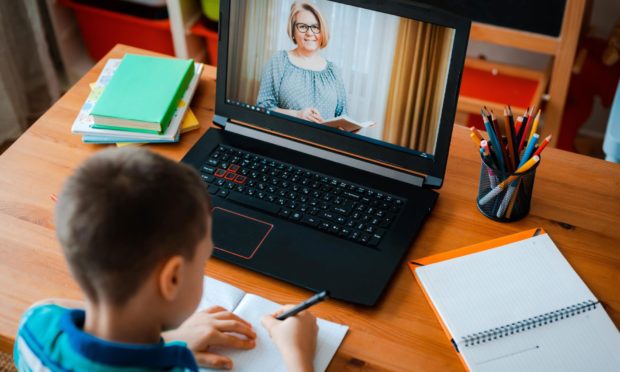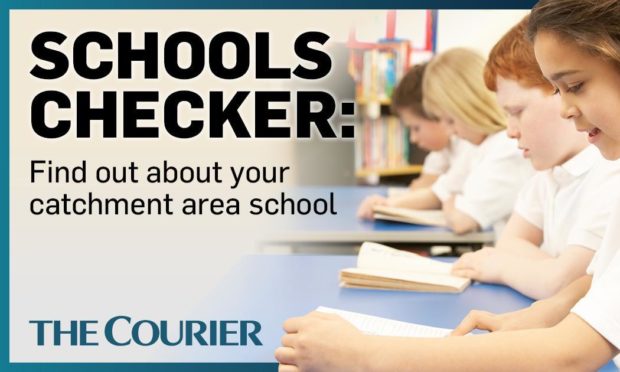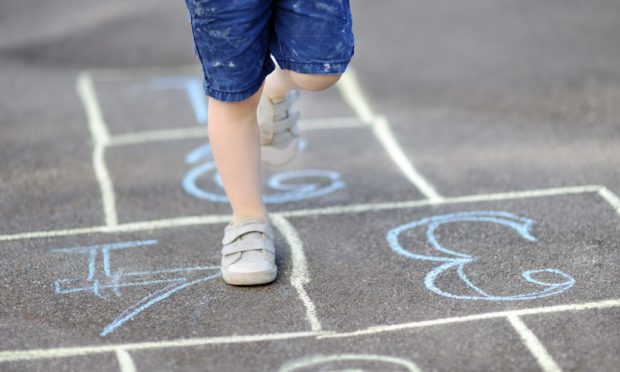Schools have learned from the first lockdown and are providing better remote learning, inspectors have found.
HM Inspectors of Education spoke to staff at a sample of schools across Scotland as part of their national overview of remote learning provision.
A report published by Education Scotland on Friday concluded: “Overall, there is clear evidence that schools have learned from the previous lockdown and are continuing to improve their remote learning offer.
“Even at this early stage, there are examples of schools gathering the views of learners and parents to evaluate the impact of remote learning.”
Due to increased transmission of Covid-19 schools reopened only to vulnerable children and children of key workers after the Christmas holiday, with all other pupils back to learning at home until at least the middle of February.
The Scottish Government education agency’s first report last Friday, based on discussions with local authorities, highlighted a range of issues, including a lack of IT, high levels of anxiety and unrealistic expectations from parents.
Literacy and numeracy
Its second weekly report stated that almost primary schools prioritised learning in literacy, numeracy and health and wellbeing but said more work needed to be done to ensure learning across the curriculum.
In almost all secondary schools inspectors heard the full timetable was being delivered, with changes to delivery in practical classes including some creative approaches.
The report said: “Overall, schools are providing a range of remote learning and teaching activities so that learners are not engaging in online learning for the entirety of the day.
“There is recognition across almost all schools, that a balance between online, digital learning and non-digital activities is important.”
Live lessons
Delivery of live learning varied greatly between schools, with some running live lessons daily across subjects and others providing none.
The report said: “ Overall, it is important that schools develop the right balance of live learning and independent learning that meets the needs of learners in their school.”
Access to online learning, however, remains a concern at schools where some young people have no digital device or are sharing but the report noted hard work to distribute equipment to those who need it.
Parents’ and pupils’ views
Education Scotland also conducted a survey of parents and pupils about their experience of remote learning, receiving almost 15,000 responses in six days.
It found that parents felt that teachers had built on experience from the last lockdown to improve communication and they recognised the huge effort schools are making.
Greater clarity was need around National Qualifications, however, with young people working towards National 5s, Highers and Advanced Highers highlighting worries about assessment and how grades will be awarded.
Many parents commented on feeling overwhelmed and are worrying about failing their children.”
Education Scotland
Worries were expressed about the impact on children’s mental health and wellbeing, with children missing their friends, and parents reported feeling overwhelmed.
The report said: “Many parents commented on feeling overwhelmed and are worrying about failing their children.
“Some parents who are working from home are finding it challenging to balance supporting remote learning with their own work responsibilities, home life, and caring responsibilities.
“They worry that their child may be falling behind in their learning, that gaps in learning and attainment could widen and that remote learning is unsustainable in the long term.”
There was mixed opinion about live lessons among parents, with some wanting more and others preferring none for safety, equity and flexibility reasons.



